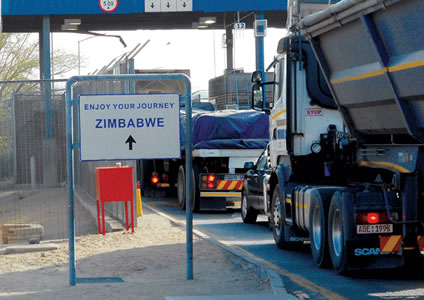The United Kingdom is tripling its funding for UNCTAD's work to help Commonwealth developing countries reap the benefits of a global deal on making trade flow smoothly.
In 2015, UNCTAD joined forces with Her Majesty’s Revenue and Customs (HMRC) service and the World Customs Organization (WCO) to advance the implementation of the World Trade Organization's Trade Facilitation Agreement.
Encouraged by the success of the past three years, the UK government has decided to extend its support to UNCTAD until 2020 and has granted the Geneva-based UN trade and development body total funding of GBP 1 million. The sum represents an increase of over 300% compared to its previous contribution.
A new agreement is due to be signed between HMRC and UNCTAD in the coming weeks. It constitutes the basis to further expand what is known in full as the “HMRC-WCO-UNCTAD Capacity Building Programme for the Implementation of the WTO Trade Facilitation Agreement”.
Bureaucratic delays and “red tape” pose a burden for moving goods across borders for traders. Trade facilitation – the simplification, modernization and harmonization of export and import processes – has therefore emerged as an important issue for the world trading system.
The Trade Facilitation Agreement, which officially came into force in February 2017, contains provisions for expediting the movement, release and clearance of goods, including goods in transit. It also sets out measures for effective cooperation between customs and other appropriate authorities on trade facilitation and customs compliance issues.
In addition, it contains provisions for technical assistance and capacity building, which are key concerns for developing countries – and are the focus of the UK-funded programme.
Most of the Commonwealth’s 53 members are developing nations. The programme’s beneficiaries are selected Commonwealth countries.
“One of the key provisions of the Trade Facilitation Agreement is the creation of a National Trade Facilitation Committee and the associated institutional and governance reforms that enable better oversight and decision-making to promote trade and create greater certainty for business," said Deborah Persaud, Head of EU and International Relations at HRMC.
“In this area, UNCTAD provide the expertise, tools and learning products to support implementation of National Trade Facilitation Committees under their Empowerment Programme. HMRC welcomes the opportunity to continue working alongside UNCTAD to support wider implementation of the Trade Facilitation Agreement given their excellent track record of delivery.”
The goal of the UNCTAD Empowerment Programme for National Trade Facilitation Committees is to help these committees implement, in a coordinated manner, trade facilitation reforms, including the provisions of the WTO agreement. A high-level of interaction and ownership, learning by doing and tailor-made content to address national needs are the tenets of success for the empowerment programme.
“Trade facilitation is all about cutting red tape by streamlining import, export and transit procedures. The result is more revenues for governments, less hassle for traders, and more exports for countries. UNCTAD’s Empowerment Programme is dedicated to supporting National Trade Facilitation Committees to implement trade facilitation reforms,” said Shamika M. Sirimanne, Director of UNCTAD’s Division on Technology and Logistics.
To date, UK support through the empowerment programmme has focused on Ghana, Liberia, Sudan and Zimbabwe. In total more than 30 developing and least developed countries has benefitted from UNCTAD's Empowerment Programme.
Mohammad Adam, rapporteur of Sudan’s National Trade Facilitation Committee, underscored its value.
“I have learned so much with this programme. Now, I think about trade facilitation in a different way. I understand better all the things that Sudan can do and how important it is to mainstream trade facilitation in Sudan's development policy," he said.
The trade facilitation programme is just one part of UNCTAD’s work with the Commonwealth and its member states.
In September 2017, UNCTAD also signed a cooperation agreement with the Commonwealth Secretariat that will see them work hand in hand to boost sustainable growth in developing countries, with a strong focus on island nations and Least Developed Countries (LDCs).
There are 47 LDCs, mostly in Africa, and they have long been a focus of the work of UNCTAD, which carries out economic research, produce analyses, policy recommendations to support government decision-making, foster consensus building and offer technical assistance to support the countries’ effective and equitable integration into the global economy.
Thirteen of the world’s LDCs are in the Commonwealth, which is a voluntary association of independent and equal sovereign states. Its London-based secretariat provides guidance on policy making, technical assistance and advisory services to Commonwealth member countries and supports governments to help achieve sustainable, inclusive and equitable development.

